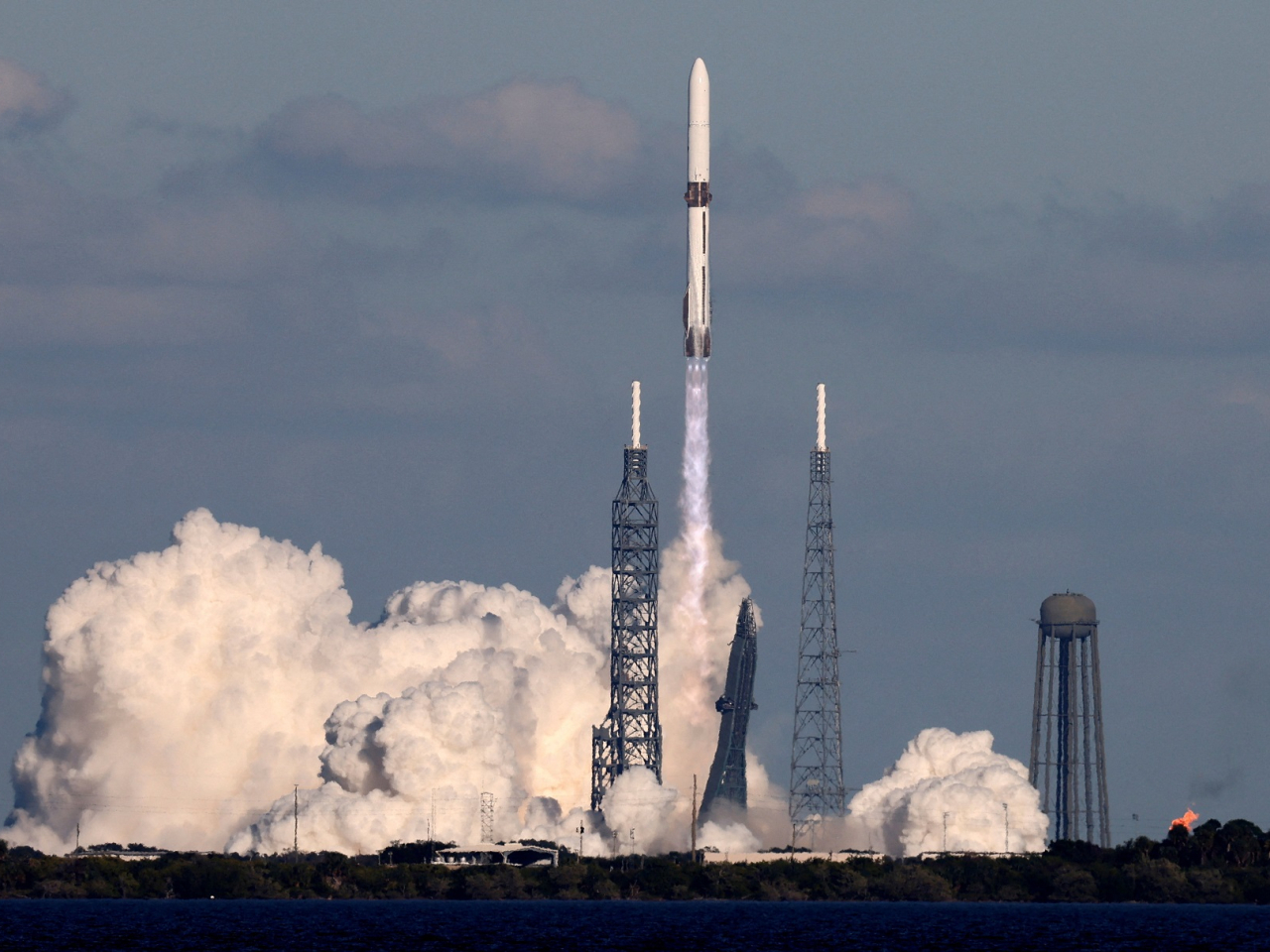The giant New Glenn rocket from billionaire Jeff Bezos' space company Blue Origin launched from Florida on its debut mission for paying customers on Thursday, sending two Nasa satellites toward Mars while also nailing the landing of its reusable booster for the first time.
The powerful two-stage rocket's first flight since its debut in January and the successful booster landing represented key milestones for Blue Origin in its quest to compete on a more equal footing with Elon Musk's rival SpaceX, the world's dominant rocket launch service.
A live Blue Origin webcast showed the rocket ascending from its launch tower through clear afternoon skies in a thunder of flames and billowing clouds of vapour moments after its seven BE-4 liquid-fueled engines roared to life. The launch followed several days of delays due to cloudy skies and a geomagnetic storm.
Some 10 minutes after liftoff, the 17-storey-tall New Glenn first-stage booster made a return landing on the deck of a barge floating in the Atlantic, achieving for Blue Origin an important objective of reusability that was pioneered by SpaceX. The first attempt at such a landing in January failed.
With Thursday's launch, Nasa's twin EscaPADE spacecraft represented the first science payload that Blue Origin has delivered into orbit for Nasa or any customer.
Musk acknowledged Blue Origin's accomplishment, posting on his social platform X: "Congratulations @JeffBezos and the @BlueOrigin team!"
Cheers erupted in Blue Origin's Rocket Park mission control centre at Cape Canaveral as video showed the landing of the booster, dubbed "Never Tell Me the Odds" in a reference to a line spoken by "Star Wars" hero Han Solo in the film "The Empire Strikes Back."
About 20 minutes later, mission control confirmed that New Glenn's upper stage had achieved its primary mission – deployment of the EscaPADE spacecraft into outer space to embark on a 22-month voyage to Mars.
Ariane Cornell, a Blue Origin vice president, hailed the launch as heralding "the next era of spaceflight for Blue Origin."
The dual spacecraft, dubbed Blue and Gold, are due to reach Mars in 2027 and enter synchronised elliptical orbits for an 11-month study of the planet's space weather environment.
Instruments aboard the satellites will analyse how solar winds interact with the relatively weak Martian magnetic field and how that interaction may contribute to depletion of the thin Martian atmosphere.
EscaPADE, short for Escape and Plasma Acceleration and Dynamics Explorers, was originally slated for launch in October 2024, but was delayed by setbacks in development of the New Glenn rocket.
Blue Origin has spent billions of dollars developing New Glenn, a heavy-lift-class rocket designed to become the company's workhorse vehicle for flying people and cargo into orbit.
Named for John Glenn, the first American to orbit Earth, the spacecraft produces two times more thrust at liftoff than SpaceX's Falcon 9 rocket and about the same as SpaceX's Falcon Heavy vehicle, while offering more cargo room than its rivals. (Reuters)





